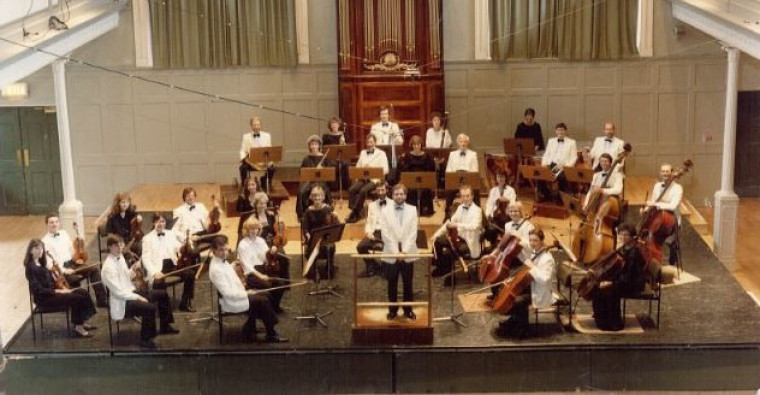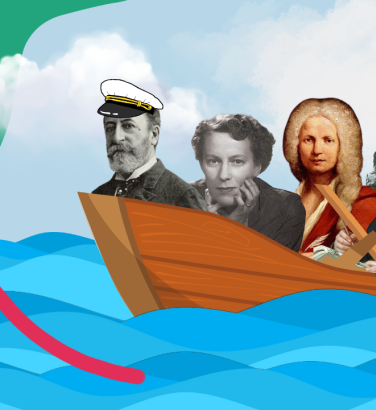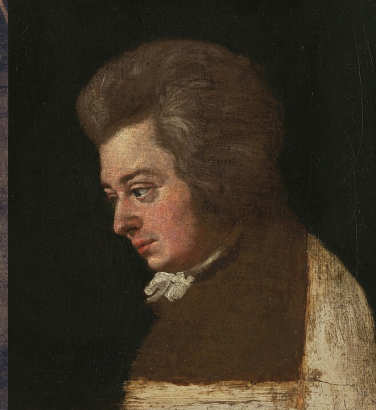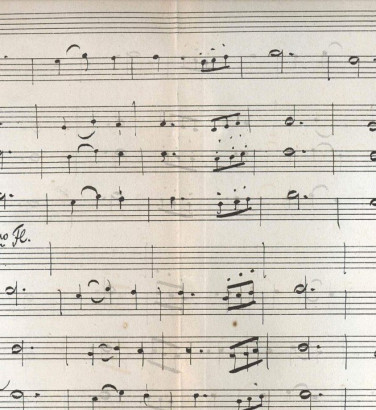
SCO at 50: your memories
1 Jan 2024
News Story
The Orchestra in 1985
Back in November, we asked you to get in touch with your memories of SCO concerts past, and what a flood of stories came in! Did you know, for instance, that the Orchestra’s very first concert, back in January 1974, was to have featured none other than David Oistrakh as soloist? Or that Principal Flute David Nicholson objected to having Mendelssohn’s Overture to A Midsummer Night’s Dream as a concert opener, owing to the inherent tuning difficulties of its haunting opening chords?
First to get in touch was someone who actually sold programmes at the Orchestra’s inaugural concert in Glasgow – James Loughran conducting Mozart’s Symphony No 29, Britten’s Les illuminations and Beethoven’s Symphony No 4 – which “showed from the start what a fine chamber orchestra the SCO is”. It was a last-minute decision on their part, owing to the venue being short-staffed, but this person has since become a faithful Subscriber, so it has clearly paid dividends!
More recently, only a couple of years before Covid, the staff at another venue included a frustrated retiree who discovered a nascent love of classical music as an usher. They may regret not having kept up the cello at school, but there’s an evident delight in having been possibly “the city’s oldest ice cream seller” at SCO concerts, now enjoyed from a seat in the audience.
For one family, a concert they attended in 2019 proved something of a revelation: the children have all gone on to pick up musical instruments, still attending frequent performances alongside their parents. Another person joined SCO audiences after overhearing a musician practicing somewhere close to their own home: a bit of investigation revealed this to be Principal Double Bass Nikita Naumov, who encouraged them to go to a concert to hear the full Orchestra. The conductor that night was none other than Maxim Emelyanychev, who immediately made a powerful impression: “I was mesmerized by the concentration and respect the players had for him. Pure bliss.”

The Orchestra in 1990
It seems significant that many of Maxim’s performances are already recalled so fondly. From his debut – stepping in at short notice for an indisposed Robin Ticciati for Schubert’s Symphony No 9, Great – to conducting Haydn’s Seasons, not to mention the various iterations of Maxim’s Baroque Inspirations (“leading some of the Orchestra out into the foyer like the Pied Piper with his recorder during the interval”), there have been many recent highlights involving our Principal Conductor. As one attender put it, “I never leave a Maxim concert without a smile on my face.”
Sir Charles Mackerras’ appearances with the Orchestra also rank very highly in your memories. Among the performances highlighted were Bartok’s Music for strings, percussion and celeste (“bouncing along engagingly, with his body moving in time to the music”), a revelatory Mozart Symphony No 40 "which crackled with nervous energy", and his highly-regarded Beethoven cycle at the 2006 Edinburgh International Festival, the live recordings of which have subsequently taken pride of place in many a CD collection.
This composer, a cornerstone of the SCO repertoire, was also mentioned in relation to a young Simon Rattle, who conducted his “first ever Beethoven 9” with the Orchestra, as recalled by one of the Chorus members. The drama of his having to leave the stage while conducting Mozart’s Sinfonia Concertante (to be replaced by Edward Harper, sitting in the audience) was recalled in vivid – if, it has to be said, conflicting – detail by many, but he is also remembered for a “wickedly decadent” performance of Weill's Seven Deadly Sins.
As for other conductors, Paul Sacher – the commissioner of music by luminaries including Britten, Bartók and Stravinsky – provided a vital link to composers of the early 20th century in a number of concerts, while Ian McCrorie was much appreciated for something of a brainwave when a piano soloist suffered a hand injury shortly before the performance was to begin. With the Chorus due to sing Rachmaninov’s Vespers after the interval, he made the decision to give a talk about this great work in lieu of a first half, resulting in a performance which “remains my most memorable concert”.
The men wore white tie and tails, the women were in evening gowns - every one different, none of the same colour. Before a note had sounded, you sensed you were at a classy, not 'dressy', event.
Turning to more recent performances, many of you mentioned how moving you found the concerts immediately before and after the Covid lockdown. The former ended with Nicola Benedetti playing Maxwell Davies' Farewell to Stromness and thanking the audience for making the effort to attend, and several attenders have mentioned the significance of their first concerts back among the audience as cultural life reasserted itself in late 2021. Maximiliano Martín’s performance of Mozart’s Clarinet Concerto was among those singled out for particular praise.
We also heard from a handful of people whose involvement was more behind-the-scenes; as you can imagine, they had many delightful stories to report. Among these was an administrator whose car suffered a puncture while driving renowned cellist Paul Tortelier from York to Glasgow - in a remote part of the Borders. This being long before the days of mobile phones, there was no option but to change the tyre there and then. “Paul couldn’t risk damaging his hands so he sat on the verge and read out the instructions (in French as it was a Renault) while I did the work!”
This same person also described the challenges of touring in those early days, when the Orchestra “had been granted funding from the Scottish Arts Council on the understanding that the SCO would give most of its concerts outside the major cities”. Despite audience numbers being often on the low side, founding conductor Roderick Brydon “was determined not to dumb down the programming just to try to attract more punters”. Thankfully persistence paid off: these concerts “all built the reputation and the spirit of the Orchestra”, and the Summer Tour has since become a well-loved part of the Orchestra’s year.
Speaking of spirits, another former member of SCO staff recalls such gems as “negotiating with Glenlivet to support the fireworks concerts”, “a number of musical Highland train journeys (some by steam)” or none other than Angela Rippon narrating Peter and the Wolf.

From a 1995 photoshoot: captions welcome!
Perhaps the most entertaining memories of all, however, have had very little to do with the actual music performed. One long-term Subscriber recalled a concert at which “an amiable young man, who was completely plastered, conducted the Orchestra from the side gallery, to his huge amusement." At another performance, very much in the Orchestra’s early days, the auditorium was used as a short cut for people setting up a meeting elsewhere in the venue: “3 stalwart ladies marched in bearing large teapots and clanked round the side of the gallery. Luckily the audience didn’t seem too fazed!” At the less disruptive end of the spectrum, one supporter admits the lasting memory of a concert with Joan Sutherland in the early 1980s was not so much the music as “the groupies with their flowers”.
We’ll leave the last word to a long-term Subscriber. “The Orchestra has come on a long way in 50 years, but in the essentials of style, spirit and individual responsibility, the ensemble remains – despite changes in personnel and a constantly evolving cultural landscape – unmistakably the SCO.”
Our heartfelt thanks to everyone who contributed to this article.
Related Stories
![]()
Making a splash: water music beyond Handel
5 January 2026
We take a look at musical depictions of water, from trickling burns to the wide expanse of the ocean, to see what lurks below the surface.![]()
Mozart and the symphony
22 December 2025
Stuck between the symphonies of Haydn and Beethoven, where do Mozart's fit in?![]()
Unfinished symphonies
15 December 2025
Your starter for ten: besides Schubert, who has an unfinished symphony to their name?


